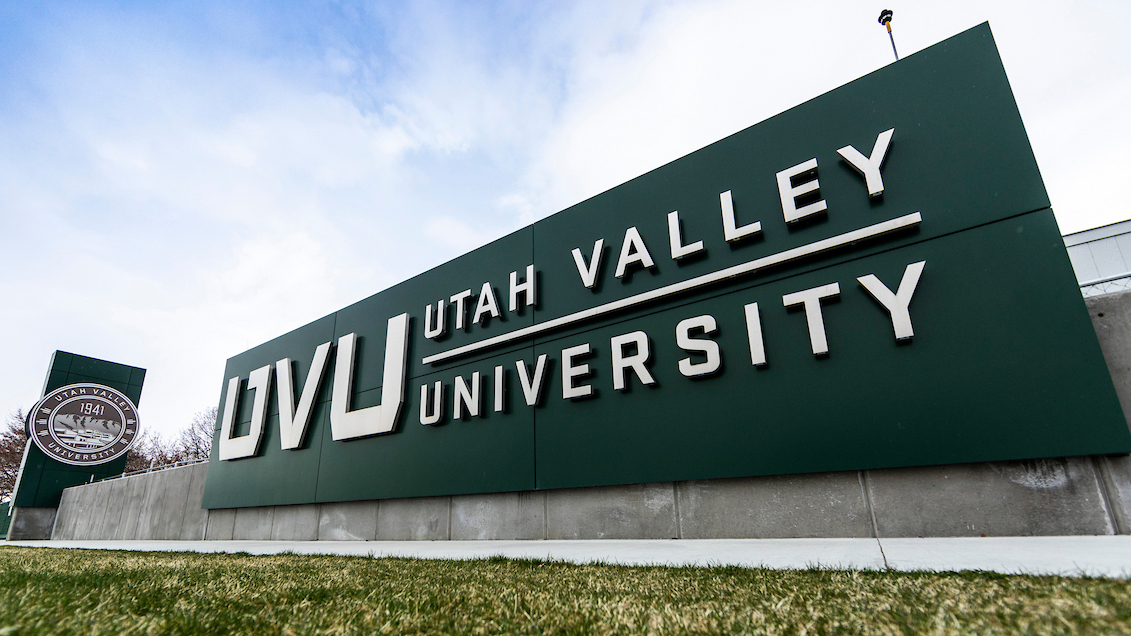Utah Valley University President Astrid S. Tuminez announced the university’s new Applied Artificial Intelligence Institute today at the Utah Valley Chamber of Commerce, Growth & Prosperity Summit on the Orem Campus, establishing UVU as a living laboratory and model for AI in higher education.

Utah Valley University President Astrid S. Tuminez announced the university’s new Applied Artificial Intelligence Institute today at the Utah Valley Chamber of Commerce, Growth & Prosperity Summit on the Orem Campus, establishing UVU as a living laboratory and model for AI in higher education.
In addition, Tuminez announced UVU’s new Master of Applied Artificial Intelligence degree that will be available to students in the fall of 2025. This program will prepare professionals from different backgrounds to harness artificial intelligence (AI) to create effective business solutions across many industries. Applications for the program will be available online on Dec. 1.
These announcements follow a year of work and research by a task force of faculty and staff focused on integrating generative AI into the university’s academic and administrative programs with the ultimate goal to equip students with the skills necessary to thrive in a rapidly evolving job market.
Housed in Academic Affairs, the AI Institute will be led by Rachael Hutchings, J.D., executive director, and Barclay Burns, Ph.D., chief AI innovation officer. Its mission is to research, develop, test, and share effective AI applications with students, faculty, staff, and the community.
“The Applied AI Institute is a significant step forward in our vision for education at UVU,” said Astrid S. Tuminez. “We believe that everyone, regardless of their major, should engage with this transformative technology and become comfortable with it. By integrating hands-on learning experiences into our curriculum, we are empowering our students to thrive in the rapidly evolving world of work.”
UVU is also prioritizing the use of AI to enhance student internships and job placements. By collaborating with local businesses and tech companies, the university will create opportunities for students to gain hands-on experience with AI technologies. These partnerships will bridge the gap between academic learning and practical application, providing students with a valuable head start in their careers.
“The institute will not only be a hub for our students, but it will be a vital community resource,” said Tuminez. “Our goal is to open doors for all individuals, businesses, and organizations to work with us to understand what AI brings to the world of learning and work, how to invest our resources, and how to deploy and govern this new technology.”
One example of AI’s benefits at UVU can be seen in the Woodbury School of Business, where Noah Myers, an assistant professor of accounting, transformed his spreadsheet automation course from a full semester into just two weeks. He teaches students to generate code using simple English instructions in AI.
“As an accountant, not a computer programmer, I use AI to convert my needs into code without needing to know programming,” Myers said. “This makes complex tasks simpler and more accessible for students.”
For more information about UVU’s Applied AI Institute and how it is shaping the future of education, contact Rachael Hutchings at [email protected].